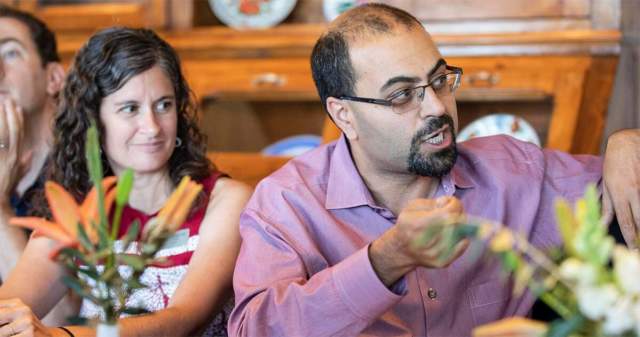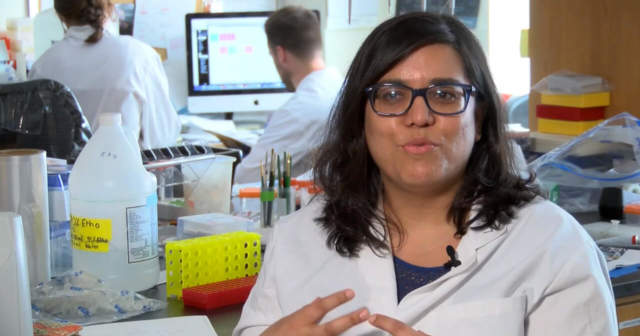Treating major depressive disorder (MDD) can be difficult due to the complex nature of the disease. Many patients and their doctors struggle to find the right treatment for an individual. Given that MDD is the leading cause of disability worldwide, more effective treatment options are necessary.
We at One Mind are thrilled to announce the selection of our 2016 One Mind / Janssen Rising Star Translational Research Award winner: Mary Kay Lobo, Ph.D, Assistant Professor of Anatomy and Neurobiology at the University of Maryland School of Medicine. Investigating the biology of depression from a perspective that accounts for activity in both brain circuits and brain chemistry could help scientists find which molecules to target to develop better medications. Dr. Lobo proposes to evaluate molecular changes and corresponding changes in specific cells in the nucleus accumbens (the brain’s reward center) in a mouse model of depression as she tests potential new drug treatments for the disease.
In the chronic social defeat stress (CSDS) mouse model of depression, test mice are exposed repeatedly to stressful contact with larger, more aggressive mice, and the classified based on the emotional resilience they display. Mice that show resulting depression-like behaviors are classified as susceptible to depression, whereas mice that show no depression-like behaviors are classified as resilient.
Here Dr. Lobo has begun to unravel a new thread in the tapestry of depression’s causes: Her research has found that a molecule called Egr3 is increased in mice susceptible to depression-like behaviors when exposed to CSDS. Her team has also discovered that Egr3 regulates RhoA, a molecule known to decrease the number of dendrites (branches that can form connections with other cells) in the tree-like form of individual nerve cells, in the nucleus accumbens of susceptible mice. Furthermore, they have observed that these neurons, with fewer dendrites, are more excitable in their electrical activity. Her study has the potential to uncover a new and possibly improved treatment strategy, targeting the RhoA pathway to stabilize the dendritic architecture and reduce excitability in relevant types of neurons, for antidepressant efficacy.
Dr. Lobo’s research proposal has three aims:
- To determine the antidepressant efficacy of RhoA pathway inhibitors in mice that displayed depression-like behaviors after chronic stress. To see which treatment approach works best, depression-susceptible mice will be treated with either a drug that inhibits specific RhoA molecules, Rhosin; a drug that inhibits the whole Rho family, C3 exotoxin; or a ROCK (an RhoA target) inhibitor, fasudil.
- To determine if stabilization of the dendritic architecture in specific cells in the nucleus accumbens underlies the antidepressant properties of RhoA pathway inhibitors. Male mice, susceptible to CSDS, will receive antidepressant RhoA pathway inhibitors identified in Aim 1. Lobo’s team will analyze the mice’s cell architecture and note resulting changes.
- Determine if stabilization of the intrinsic excitability of these cells underlies the antidepressant properties of RhoA pathway inhibitors. Dr. Lobo’s team will examine the cells of male mice susceptible to CSDS, to determine if antidepressant RhoA pathway inhibitors restore the increased intrinsic excitability to control levels.
Dr. Lobo states, “these findings can uncover novel therapies for targeting molecular processes, in specific neuron subtypes, for antidepressant therapeutics in patients suffering from MDD.” We at One Mind thank Dr. Lobo for her resourceful research.








